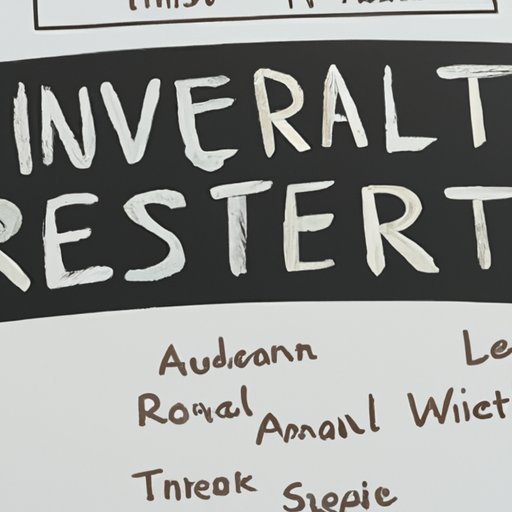Introduction
Retirement is an important milestone that marks the end of one’s working life. For many, it is a time to relax, travel, or pursue hobbies. But it is also a time when people need to make sure they have enough money saved up to support themselves during retirement. To ensure financial stability, retirees need to make smart investments that will yield returns over time. The question then becomes: where should retirees invest now?

Evaluating the Current Market Landscape
Before making any investment decisions, it is important to evaluate the current economic environment. This means looking at factors like interest rates, stock market performance, and consumer sentiment. By understanding the overall state of the economy, retirees can make more informed decisions about where to invest their money.
In addition to evaluating the market, retirees should also determine which investments are most likely to yield returns. This could include stocks, bonds, mutual funds, or other types of securities. It is important to consider both the potential risks and rewards associated with each investment, as well as the expected return on investment (ROI). With this information, retirees can make more informed decisions about where to put their money.
Exploring Options Outside of Traditional Retirement Accounts
Retirees should also explore options outside of traditional retirement accounts, such as real estate, annuities, and private equity. Real estate can provide a steady stream of income through rental payments, while annuities and private equity can offer a higher rate of return. Each of these options has its own unique set of pros and cons, so it is important to do research and understand the potential risks and rewards before investing.
Identifying Low-Risk Investments
Retirees should also look for low-risk investments that offer stability and capital preservation. These could include certificates of deposit (CDs) or government bonds. While these investments may not yield the highest returns, they can still provide some income and help protect against market volatility.

Examining the Impact of Inflation on Retirement Savings
Retirees should also be aware of the impact of inflation on their retirement savings. Over time, inflation can erode the value of their money, making it worth less in the long run. To combat this, retirees should position their portfolios accordingly, investing in assets that can keep pace with inflation.
Diversifying for Retirement Security
Diversification is another important factor to consider when planning for retirement. By diversifying their investments across different asset classes, retirees can protect themselves from market volatility and reduce their overall risk. This could include investing in stocks, bonds, mutual funds, and other securities.

Exploring the Tax Implications of Different Investments
Retirees should also be mindful of the tax implications of their investments. Certain investments may be subject to taxes, while others may be exempt. It is important to understand the tax implications of each investment before committing any money.
Considering Risk Tolerance
Finally, retirees should consider their own individual risk tolerance when making investment decisions. While some may be comfortable taking on more risk in exchange for potentially higher returns, others may prefer more conservative investments that offer stability and capital preservation. It is important to assess one’s own risk tolerance and make investment decisions accordingly.
Conclusion
Retirement is a time to enjoy the fruits of one’s labor, but it is also a time when people need to make sure they have enough money saved up to support themselves during retirement. To ensure financial stability, retirees need to make smart investments that will yield returns over time. This article explored the investment options available for retirees, including real estate, annuities, private equity, and more. Additionally, it examined the impact of inflation on retirement savings, the importance of diversification, and the tax implications of different investments. Ultimately, retirees should assess their own risk tolerance and make investment decisions accordingly.
(Note: Is this article not meeting your expectations? Do you have knowledge or insights to share? Unlock new opportunities and expand your reach by joining our authors team. Click Registration to join us and share your expertise with our readers.)
